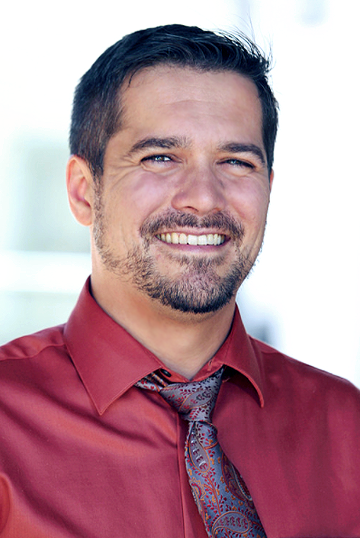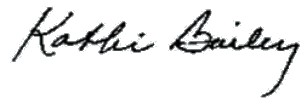
Saturday, December 12th was the day of our virtual commencement ceremony at my school – the Middlebury Institute of International Studies at Monterey (MIIS). The graduation speaker this year was my colleague, Thor Sawin. He was being honored as the speaker because the students had selected him for the school’s 2020 Teaching Excellence Award.
In this Chair’s Report, rather than appealing to you for further donations to TIRF, I am going to quote extensively from Thor’s speech. I will use his remarks to the MIIS graduates to provide the closing piece for this year-end issue of TIRF Today. Finally, I will share my reflections on the sadness this year has brought and the hopefulness with which we started 2020.
Thor’s remarks are printed in bold font below. They include words of wisdom from another, earlier educator. These interwoven discourses are punctuated with my own remarks. Thor began his graduation speech this way:
“It was a tough a year to be a student….
National borders had been shut down and international travel had dried to a trickle – apart from refugees desperately trying to escape the radical changes threatening their way of life….
Once-stable democracies looked threatened, with autocracy on the rise.
Old certainties in international relations, carefully balanced systems of international treaties, were unraveling ….
In order to find a comparable time, when death and impending hardship felt so near, everyone was turning back in their minds to the year 1918.”
Thor continued, “Although these statements could certainly describe 2020, I am here referring to 1939, a year with World War II imminent, and England facing a particularly uncertain future.
In that year, C. S. Lewis, famed as the author of Chronicles of Narnia and a don at Oxford University, gave a sermon to incoming students – now one of his most cited works, known as ‘Learning in Wartime.’
Most of the students gathered to hear him would eventually find their studies interrupted, and themselves plucked from their safe classrooms and scattered far and wide by world events. Many were questioning their role as a student in an age of such crisis.”
Thor then quoted C. S. Lewis, whose original remarks are printed in italic and bold font here:
“As students, you will be expected to make yourselves, or to start making yourselves, into what the Middle Ages called clerks: into philosophers, scientists, scholars, critics, or historians. And at first sight this seems to be an odd thing to do during a great war.
What is the use of beginning a task which we have so little chance of finishing? Or, even if we ourselves should happen not to be interrupted by death or military service, why should we – indeed how can we – continue to take an interest in these placid occupations when the lives of our friends and the liberties of Europe are in the balance? Is it not like fiddling while Rome burns?”

Thor connected these ideas from 1939 with the present situation of our graduates.He said, “You MIIS students have spent 2019 and 2020 taking an interest in ‘placid occupations’” – giving examples such as lesson planning and language learning. Thor continued with the words of C. S. Lewis, who had gone on to remind the Oxford students,
“The war” – (or we could say the pandemic, the birthing pains of racial justice, the convulsions in our political system) – “creates no absolutely new situation: It simply aggravates the permanent human situation so that we can no longer ignore it. Human life has always been lived on the edge of a precipice. Human culture has always had to exist under the shadow of something infinitely more important than itself. If men had postponed the search for knowledge and beauty until they were secure, the search would never have begun. We are mistaken when we compare war with ‘normal life’.
Life has never been normal.”
Next, Thor pointed out to his audience, “Indeed, we’ve been asking ourselves this year, how ‘normal’ were things really, even before the disruption we all lived through in the second week of March? Even in that world, one that we all miss now, we have come to understand through the upheavals of this year that things were never fully okay. Lewis continued,
“Plausible reasons have never been lacking for putting off all merely cultural activities until some imminent danger has been averted or some crying injustice put right.”
Thor then returned to the present and said, “Indeed this year gave us many plausible reasons to take our focus off of or delay our pursuit of education.” He cited upheavals in political systems, violent eruptions of racial tensions, environmental crises (such as floods, fires, droughts, hurricanes), and finally, the public health crisis of COVID-19.
Thor acknowledged that the pandemic forced many students to leave their homes “and kept those who stayed here confined to bedrooms, corners of kitchens, hungry for hugs or a hand on the shoulder reminding us that we are going to be okay.” He noted that there were “times when these ‘plausible reasons’ in 2020 led me, like many of you, to struggle and despair. Times when it was hard to get out of bed, times when summoning the cheer for another Zoom class was super difficult. …We all have had such moments we never thought we would experience, where we look around us and ask, ‘How is THIS our real life?’ and when we mourned the losses of long planned-for opportunities.”
As 2020 draws painfully to a close, I am reminded that the beginning of this year was heralded by hope. The date of the new decade provided the theme for conferences and the use of the phrase “twenty-twenty vision” served as a metaphor for clarity and long-sightedness. To make sure I am using this term correctly, I checked on Dictionary.com, which defines being long-sighted as “having great foresight; foreseeing remote results.”
I don’t know who could have foreseen the massive social, financial, and political upheavals of 2020, or accurately predicted the tragedies of physical and mental health, and the incalculable number of deaths caused by the pandemic.
This terrible current situation leads me to some hopeful, lingering reflections. First, given the growing reality of schools closing and children having to stay at home, being educated (where possible) online, will the public gain more respect for teachers? I hope so!
I also wonder if being inundated by publicity regarding the development of new vaccines will raise people’s awareness about the importance of research.
Finally, I hope that both teaching and research will come to be seen by more people worldwide as something other than “placid occupations.”
I will close this sad Chair’s Report first by thanking Thor Sawin for allowing me to share his wisdom with the readers of TIRF Today. Second,let me add the much-needed comparative morpheme to an age-old sentiment: I wish you all a happier new year.
Best wishes,


